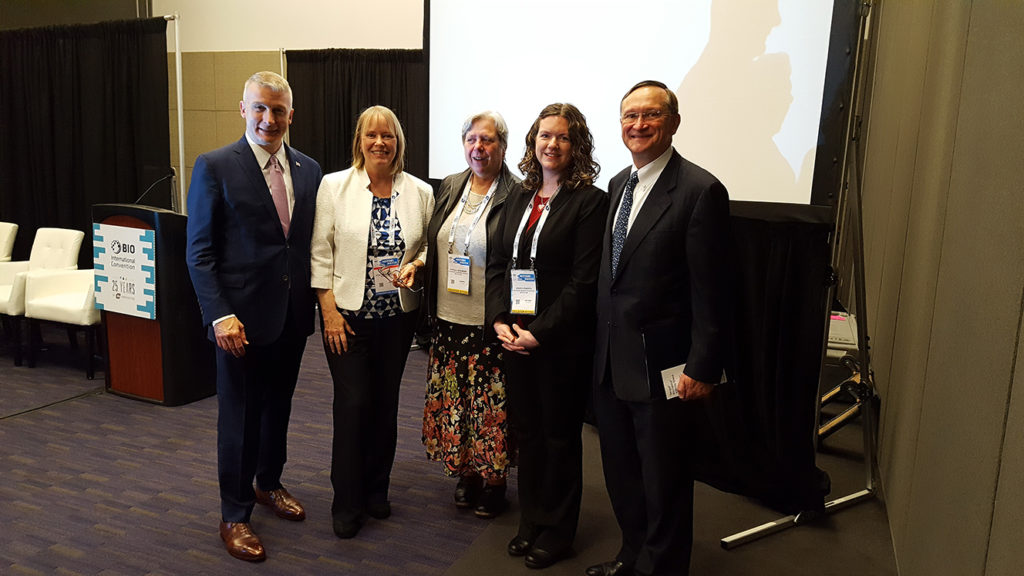SUSTAINED NANO SYSTEMS ACHIEVES POSITIVE IN-VITRO RESULTS ON LONG TERM SUSTAINED DELIVERY OF LATANAPROST FOR GLAUCOMA TREATMENT.
New York, NY – March 6, 2018 (NEWSFRONT MEDIA). Sustained Nano Systems, LLC (“SNS”), a biopharmaceutical company utilizing its platform technology of bio-resorbable nano and microparticles for long term drug delivery, is pleased to announce positive results for the in-vitro presence of Latanaprost for the treatment of glaucoma over a duration of 159 days.
Latanaprost, a prostaglandin analogue, is the #1 glaucoma drug in the world, with dosing of up to four eye drops every day for the remainder of a patient’s life. Latanaprost reduces elevated intraocular pressure in open-angle glaucoma or ocular hypertension. At the present time, there is no long-acting formulation for glaucoma, only multiple daily eyedrops. SNS LAT-LA (Latanaprost Long Acting) is designed to be administered by a single periocular injection with a duration of six months. “The potential for SNS LAT-LA to sustain deliver for six months, would fulfill an important unmet need in replacing the more burdensome and potentially less compliant regimen of daily eye drops,” said Dr. Barry Libin, CEO of SNS. LAT-LA will now undergo further studies to indicate its efficacy in the long term reduction of intra-ocular pressure.
Glaucoma is the second leading cause of blindness in the world, in which abnormally high intraocular pressure may cause damage to the optic nerve, resulting in irreversible vision loss. In the U.S. alone, 2.7 million people suffer from glaucoma. According to IMS Health data, there were 34 million prescriptions and sales of over $2.7 billion of drugs administered by eye drops for the treatment of glaucoma in the U.S. in 2017, and global spending was over $6 billion. Compliance is the biggest problem with existing therapies for glaucoma, with more than 50% of patients on topical prostaglandin analogs not compliant within the first six months of treatment
ABOUT SUSTAINED NANO SYSTEMS (SNS)
SNS is a privately held biopharmaceutical company focused on the development and commercialization of innovative therapies for diseases and conditions in ophthalmology, oncology and other areas. The Company’s research facility is located on the campus of Stony Brook University as part of the Long Island High Technology Incubator. The SNS platform is the result of a comprehensive research effort that allows for long term micro-dosing for the continuous release of drugs to targeted tissues as prescribed. The basis of the SNS pipeline is its patented technology that incorporates bio-resorbable nano and micro carriers to deliver sustained delivery of important therapeutics, including anti-inflammatories and monoclonal antibodies for immunotherapies in cancer, retinal disease, and other disease states.
For further information, visit: www.sustainednanosystems.net
Forward-Looking Statements
SNS Disclosure Notice: This press release contains “forward-looking statements” as that term is defined in the Private Securities Litigation Reform Act of 1995. For this purpose, any statements contained herein or which are otherwise made by or on behalf of the Company that are not statements of historical facts may be deemed forward looking statements. Without limiting the generality of the foregoing, words such as “may,” “will,” “to,” “plan,” “expect,” “believe,” “anticipate,” “intend,” “could,” “should,” “would,” “estimate,” or “continue,” or the negative or other variations thereof or comparable terminology are intended to identify forward looking statements. Investors are cautioned that all forward looking statements involve risk and uncertainties which may cause results to differ materially from those set forth in the statements. Such risks and uncertainties include, but are not limited to the following: the success of research and development activities and the speed with which regulatory authorizations and product launches may be achieved; government regulation generally; competitive developments; the ability to successfully market products domestically and internationally; difficulties or delays in manufacturing or issues relating to manufacturing capacity; commercial obstacles to the successful introduction of brand products generally; legal defense costs, insurance expenses, settlement costs, and the risk of an adverse decision or settlement relating to product liability, patent protection, governmental investigations, and other legal proceedings; the Company’s ability to acquire and protect patents and other intellectual property both domestically and internationally; the absence of certainty regarding the receipt of required regulatory approval or the timing or terms of such approvals; any changes in business, political and economic conditions; business interruption due to hurricanes or other events outside of the Company’s control.
Investors are cautioned not to place reliance on these forward-looking statements, which are valid only as of the date they were made. The Company undertakes no obligation to update or revise any forward-looking statements to reflect new information or the occurrence of unanticipated events or otherwise, except as expressly required by law.
Contact:
Dr. Barry Libin (516) 353‐7983, barlibin@gmail.com
Media Relations: info@newsfrontmedia.com
